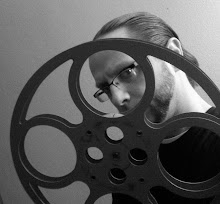In the past couple of weeks, two of cinema’s most celebrated filmmakers caused a dustup with their comments over the popular Marvel Cinematic Universe (MCU); the now decade-old franchise that has spanned over 20 connected films based on Marvel Comics.
The first shot came from Martin Scorsese (GOODFELLAS, GANGS OF NEW YORK, THE DEPARTED). Speaking with Empire, Scorsese was asked his opinion on the MCU, and called them theme parks, while adding:
“But that’s not cinema.”
“It isn’t the cinema of human beings trying to convey emotional, psychological experiences to another human being.”
A week later, Francis Ford Coppola (THE GODFATHER 1 & 2, APOCALYPSE NOW) chimed in. Speaking in France where he was accepting the Prix Lumiere award for contributions to cinema, Coppola was asked about Scorsese’s comments, to which he said:
“When martin Scorsese says that the Marvel pictures are not cinema, he’s right because we expect to learn something from cinema, we expect to gain something, some enlightenment, some knowledge, some inspiration.”
“Martin was kind when he said it’s not cinema. He didn’t say it’s despicable, which I just say it is”
The comments immediately drew praise and criticism. Acclaimed British director Ken Loach, and Brazilian filmmaker Fernando Meirelles rushed to Coppola and Scorsese’s defense, while Marvel director James Gunn (GUARDIANS OF THE GALAXY) defended the MCU, and IRON MAN director Jon Favreau took the high road. Marvel fans immediately went on the offensive, and even fans of the up-and-down movies based on DC Comics came to defend their genre.
Ultimately this is a question of what is cinema and what isn’t. If it plays in theatres, then yes of course it’s cinema. The MCU however has done something new in the last decade; they’ve taken a page out of TV and serialized their movies…with each film acting as an episode or chapter in a larger story. Old-school filmmakers don’t get it, but it offers an opportunity for long-form storytelling. It was big and bold then, and it’s big and bold now. To say that superhero movies don’t inspire is ignorant, because just as Coppola’s work inspired this generation, Marvel will do so for the next. And in the last year, this Blogger has witnessed grown adults emotionally devastated after Marvel’s INFINITY WAR and then again after ENDGAME. True tears were shed. If that isn’t cinema, then nothing is.
Scorsese and Coppola would be well-served to look beyond the colorful capes and armor that superhero movies are chock full of. Stay through the credits and look at the thousands of people it took to make one film. The MCU has employed tens of thousands of people, and that is healthy for Hollywood. It is also an axiom in the industry that blockbuster movies are the ones that keep the lights on in the theatres. The idea that movie theatres would have survived with only arthouse fare, or the non-despicable stuff, is absurd. This year alone, the top six box office earners account for more income than 7 through 40 combined. Sorry Francis and Marty, but your industry lives and breathes off movies that are fun; like theme parks are fun. And no, box office does not equal quality (not all the time), but without box office, there are no movie theatres.
Francis and Marty could also learn something from looking at their own past. In the 1970’s, they, along with Steven Spielberg and George Lucas, were a group of young filmmakers who were expected to revolutionize the film industry. Well, revolutionize it they did, but now that revolution isn’t working for them so they lash out against it. And in doing so, they have become the stubborn old men that they originally were rebelling against. This Blogger would also love to know what their old buddy George Lucas would have to say about all this; after all, he’s the one who got us into blockbuster land with his (ahem) serialized movies called STAR WARS.
This is a question of not only what is cinema and what isn’t, but also what is art and who gets to say if it is or not. Coppola and Scorsese have made some of the greatest films of all time, so they’ve certainly earned the right to give an opinion, but their comments suffer from tunnel-vision, and they sound like old men bitter about the world passing them by. The two of them have made careers out of the philosophy that cinema should never be limited, but limitations are exactly what they are now demanding. If we’ve learned anything from Coppola and Scorsese over the years, it’s that a great story can be found anywhere, and that’s what cinema is all about.


No comments:
Post a Comment
A few rules:
1. Personal attacks not tolerated.
2. Haters welcome, if you can justify it.
3. Swearing is goddamn OK.